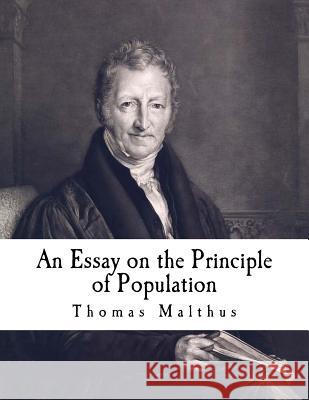An Essay on the Principle of Population: The Future Improvement of Society » książka
An Essay on the Principle of Population: The Future Improvement of Society
ISBN-13: 9781537464091 / Angielski / Miękka / 2016 / 80 str.
An Essay on the Principle of Population: The Future Improvement of Society
ISBN-13: 9781537464091 / Angielski / Miękka / 2016 / 80 str.
(netto: 34,49 VAT: 5%)
Najniższa cena z 30 dni: 35,92
ok. 16-18 dni roboczych
Bez gwarancji dostawy przed świętami
Darmowa dostawa!
An essay on the principle of population, as it affects the future improvement of society, with remarks on the speculations of Mr. Godwin, M. Condorcet, and other writers - Thomas Malthus.. The book An Essay on the Principle of Population was first published anonymously in 1798, but the author was soon identified as Thomas Robert Malthus. The book predicted a grim future, as population would increase geometrically, doubling every 25 years, but food production would only grow arithmetically (rising as 1,2,3,4, etc.), which would result in famine and starvation, unless births were controlled. The book overlooked potential improvements in farming such as steam-powered machines, chemical fertilizers, drip irrigation, night lighting, or genetically modified organisms (GMO). The following Essay owes its origin to a conversation with a friend, on the subject of Mr Godwin's essay on avarice and profusion, in his Enquirer. The discussion started the general question of the future improvement of society, and the Author at first sat down with an intention of merely stating his thoughts to his friend, upon paper, in a clearer manner than he thought he could do in conversation. But as the subject opened upon him, some ideas occurred, which he did not recollect to have met with before; and as he conceived that every least light, on a topic so generally interesting, might be received with candour, he determined to put his thoughts in a form for publication. The Essay might, undoubtedly, have been rendered much more complete by a collection of a greater number of facts in elucidation of the general argument. But a long and almost total interruption from very particular business, joined to a desire (perhaps imprudent) of not delaying the publication much beyond the time that he originally proposed, prevented the Author from giving to the subject an undivided attention. He presumes, however, that the facts which he has adduced will be found to form no inconsiderable evidence for the truth of his opinion respecting the future improvement of mankind. As the Author contemplates this opinion at present, little more appears to him to be necessary than a plain statement, in addition to the most cursory view of society, to establish it.
Zawartość książki może nie spełniać oczekiwań – reklamacje nie obejmują treści, która mogła nie być redakcyjnie ani merytorycznie opracowana.











